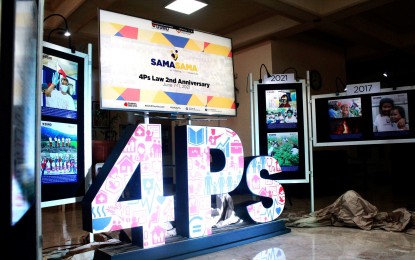
(Courtesy of DWSD)
MANILA – The Pantawid Pamilyang Pilipino Program (4Ps) can still be improved and will continue to serve its purpose if its flaws are corrected.
In a radio interview on Sunday, Senator Sherwin Gatchalian said 4Ps is at least 50 percent successful in terms of education but ineffective in poverty alleviation.
The goal of Republic Act 11310 or the 4PS law, signed in 2019, was to break the intergenerational cycle of poverty by fostering change in behavior among parents to invest in their children’s future, through the health, nutrition, and education aspects.
The Department of Social Worker and Development (DSWD) implements the program.
Under the law, a beneficiary will be excluded after seven years of availment.
Gatchalian said he will require DSWD to submit studies to show the effects of 4Ps in the health, education, and poverty alleviation of some 4.4 million beneficiaries who get assistance between PHP2,000 and PHP4,000.
“Ano ang mali? Kailangan manaliksik gamit ang siyensya. Hindi sapat na grumaduate ng high school. Tingin ko dapat college at dapat may trabaho. Palakasin ang livelihood component. Iyan ang inisyal na analysis ko (What went wrong? We need scientific research. Finishing high school is not enough. It should be at the collegiate level. They must have a job and livelihood component. That is my initial analysis),” Gatchalian said.
Citing inflation rate, Gatchalian said there is a need to increase the budget but is against a lump sum allocation as based on his experience in the local government, just one of 10 beneficiaries turned out successful.
“Pag-aralan natin mabuti ang konsepto. Dapat umangat ang estado (We have to study it. The concept is to improve the condition of the state),” he said.
The 4Ps program started in 2007 as a poverty reduction strategy that provides grants to extremely poor households, patterned after conditional cash transfer programs in Latin America and Africa. (PNA)
